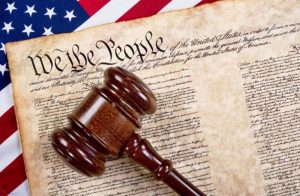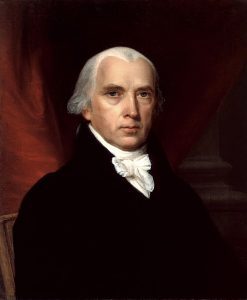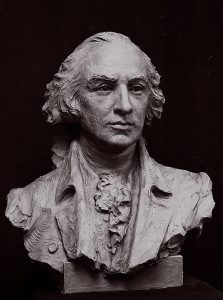June 8, 1789 – James Madison Bill of Rights
The Bill of Rights is one of the most critical documents in American history. It was written by James Madison and ratified on December 15, 1791.
The Bill of Rights guarantees the rights of all Americans, including freedom of speech, freedom of religion, and the right to bear arms. These rights have been enshrined in American law for over two centuries and have profoundly impacted American society.
The Bill of Rights is essential to the Constitution and must be protected to maintain our rights as Americans.
The Bill of Rights was written in response to the abuses of power by the British government. The colonists were tired of being taxed without representation and violating their rights.
Madison wanted to ensure that the government could not abuse its power and violate the rights of the people. He also wanted to guarantee that all Americans would have the same rights and protections.
The Bill of Rights contains ten amendments that guarantee the rights of all Americans. These amendments protect our freedom of speech, freedom of religion, and right to bear arms.
What is the Bill of Rights

Bill of Rights
The Bill of Rights is the name given to the first ten amendments to the United States Constitution. These amendments were ratified on December 15, 1791, and they set out a number of specific rights and protections for Americans.
Among other things, the Bill of Rights guarantees freedom of speech, freedom of religion, and the right to bear arms. It also includes many provisions designed to protect Americans from unreasonable searches and seizures by the government.
In addition, the Bill of Rights establishes a number of procedural rights for criminal defendants, including the right to a trial by jury. Taken together, these amendments have profoundly impacted American society, and they continue to be an essential part of our constitutional system.
Why was the Bill of Rights written?
The Bill of Rights was written in response to the critical problems during the transition from colonial rule to independence. At the time, the fledgling United States was governed by the Articles of Confederation, which granted a great deal of power to the individual states.
This system proved problematic, as it led to a weak central government that could not effectively protect its citizens’ rights. In 1787, delegates from all over the country met in Philadelphia to draft a new constitution.
One of the most controversial issues they faced was balancing individuals’ rights with the need for a strong and cohesive government. Ultimately, they decided to include a Bill of Rights to protect individual liberties. The Bill of Rights consists of 10 amendments that guarantee fundamental rights and freedoms, such as freedom of speech and freedom of religion.
These amendments were designed to safeguard citizens against abuse by the government and ensure that their rights were not infringed upon. In addition, the Bill of Rights served as a model for other countries struggling with similar issues. Today, the Bill of Rights is considered one of the most critical documents in American history.
What are some of the key rights in the Bill of Rights?

James Madison
The Bill of Rights is the first ten amendments to the United States Constitution. These amendments protect individuals from infringement on their natural rights by the government.
The first amendment protects freedom of speech, religion, and assembly.
The second amendment protects the right to bear arms.
The third amendment protects citizens from being forced to house soldiers in their homes during wartime.
The fourth amendment protects citizens from unreasonable searches and seizures by the government.
The fifth amendment protects citizens from self-incrimination and guarantees due process of law.
The sixth amendment protects the right to a speedy and public trial by an impartial jury.
The seventh amendment guarantees the right to a trial by jury in civil cases.
The eighth amendment protects citizens from excessive bail and cruel and unusual punishment.
The ninth amendment protects rights not explicitly enumerated in the Constitution.
The tenth amendment reserves all powers not delegated to the federal government for the states or the people.
Together, these amendments form the cornerstone of American liberty and individual rights.
How has the Bill of Rights been used over the years
The Bill of Rights is a set of ten amendments to the United States Constitution. These amendments were ratified in 1791 and guarantee personal freedoms and protections, as well as limit government power.
Over the years, the Bill of Rights has been used to protect many civil liberties, including freedom of speech, freedom of religion, and the right to bear arms.
The Bill of Rights has also been used to strike down laws that are determined to be unconstitutional. In recent years, the Supreme Court has cited the Bill of Rights in many landmark decisions, affirming the importance of these protections.
The Bill of Rights will undoubtedly remain a central part of our national conversation as we grapple with complex social and political issues.
What impact has the Bill of Rights had on American society

James Madison Bust
Since its ratification in 1791, the Bill of Rights has profoundly impacted American society. Perhaps the most significant effect has been the guarantee of individual rights and freedoms.
The First Amendment protects Americans’ right to freedom of speech, religion, and assembly, while the Second Amendment guarantees the right to bear arms. These rights have helped to shape American society into what it is today. In addition, the Bill of Rights has served as a check on government power.
The Fifth and Fourteenth Amendments protect citizens from being deprived of life, liberty, or property without due process of law. The Tenth Amendment reserves powers not delegated to the federal government to the states or the people.
These provisions have helped to ensure that our government remains accountable to the people it represents. Overall, it is clear that the Bill of Rights continues to play a vital role in American society.
How can we protect the Bill of Rights in the future?
The Bill of Rights is an essential part of the Constitution and has been a cornerstone of American democracy for more than 200 years.
However, it is also clear that the Bill of Rights is not invulnerable. In recent years, key provisions have faced many challenges, such as the right to bear arms and the freedom of speech. As we look to the future, we must take steps to protect the Bill of Rights from further erosion.
One way to do this is by educating Americans about the importance of the Bill of Rights and the rights it protects. We can also work to ensure that future generations are taught the importance of preserving these fundamental rights.
By taking these steps, we can help ensure that the Bill of Rights remains a bulwark of liberty for years to come.
